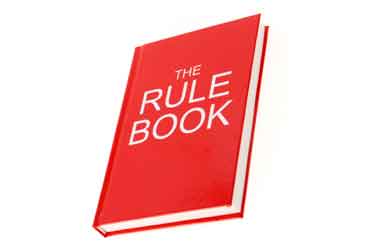|
|
| Should Rules and Regulations be set in Stone? |
| By Carl ToersBijns, former deputy warden, ASPC Eyman, Florence AZ |
| Published: 05/09/2016 |

Working inside a jail or prison promises to be a challenging environment many would never understand unless they walked a couple of miles in their shoes. No guns, all guts and taking control with verbal commands most of the time, the entire job entails following rules and enforcement of such regulations under very difficult and stressful situations. Everything these officers and employees do or perform, relies on rules so should these rules be set in stone? Inevitably, working as an officer or employee inside a detention or corrections facility is based on courage, intelligence, education and experience to acquire the skill set to manage difficult people. Remember that inside such a setting, the chances of dealing with those persons with anti-social personalities are ten times more likely than in our communities; many of them are at the extreme end of the continuum of negative behaviors. Thus rules are written and enforced for safety and security reasons. Rules are the most consistent and reliable tools we have to supervise juvenile or adult offenders. In order to be fair, firm and consistent, rules play a huge role to do it right. Every situation has at least two sides but ultimately, at the end or during such conversations or controversies, a decision has to be made and that decision has to have a legitimate basis for maintaining the integrity of your words, actions and reasons. Although discretionary decisions are allowed in many cases, violating or ignoring sound good principles sets a dangerous precedent and could come back and haunt you if something goes wrong. Situational assessments are invaluable tools to use on the job. Matching up your words or actions to the situation is most important and following a set of rules as guidelines can bring resolution to most matters quickly without any second thoughts. That’s not to imply that you need to pull out the rule book every time you deal with a controversy but you should never abandon the structure set forth for many such situations as you might be tempted the thought of by-passing such processes and ignore them creating a more difficult position to explain in the after-action report. On the face value of the rulebook, it was written to protect you from harm as well as assuring the problem addressed is within the guidelines allowed or approved by the agency you work for. When applied, it protects your actions no matter how wrong the situation may go as rules can always be reviewed after the fact and used as a tool to learn and adapt to different situations. When the decision is based on the rulebook, any partiality or personal biases are avoided. Your decision did not produce an indiscriminate or verbal printout of an arbitrary position. Your words and actions are backed up by this set of rules that both you and the offender learn from the beginning of the employment and incarceration periods. No excuses, no exceptions and no actions to defend when applied consistently and non-judgmental. Rules are set in stone to prevent anarchy. Sticking with the rulebook produces a fair and consistent response to most problems and those that produce exceptions should be processed through a supervisor and considered for change when the time allows such a process to take place. Rulebooks are written to cover a multi-band of generational thinking and combine ‘best practices’ or new technologies into a process that can be distributed evenly without any personal or subjective matters. What this comes down to is frequent training and learning the appropriate interpretation of the rules with a reiterating effort to imprint them the best we be able to do. Never decline an opportunity to ask questions when in training or when directed to carry out an assignment. One should take the time to reflect such situations to become more informed and competent to carry out a wide variety of duties that may at times appear flawed or awkward to carry out but nevertheless, approved and sanctioned by the policies written. Following the rules does not imply giving up a plethora of personal attributes perceived to be authority and power or control. It simply means that your words and actions were formally approved and therefore allowed to be legitimately executed. Keep in mind the rulebook gets a pasting or a hammering every time there is a controversy but if we didn’t have them, we would lack structure and definitive rules and regulations. Where does it stop when you break your own rules and regulations? Love them or hate them, we need them. Corrections.com author, Carl ToersBijns, (retired), has worked in corrections for over 25 yrs He held positions of a Correctional Officer I, II, III [Captain] Chief of Security Mental Health Treatment Center – Program Director – Associate Warden - Deputy Warden of Administration & Operations. Carl’s prison philosophy is all about the safety of the public, staff and inmates, "I believe my strongest quality is that I create strategies that are practical, functional and cost effective." Other articles by ToersBijns: |
MARKETPLACE search vendors | advanced search

IN CASE YOU MISSED IT
|


Comments:
No comments have been posted for this article.
Login to let us know what you think